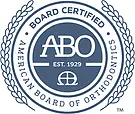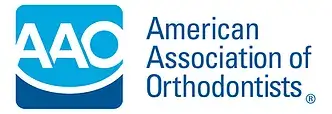Getting braces is an important step towards achieving a straighter and healthier smile. However, the first week of having braces can be a new and sometimes challenging experience. But what exactly happens during this crucial period? Let’s dive in and explore the first week of braces and what you can expect.
Key Takeaways
- The first week of braces may involve initial discomfort and soreness as your mouth adjusts to the braces and wires.
- Your first orthodontic appointment will be a consultation with the orthodontist, where they will evaluate your teeth, discuss treatment options, and provide care instructions.
- Proper daily care and maintenance, including brushing and flossing, are essential to keep your braces clean and your teeth healthy during treatment.
- You may need to make dietary changes and avoid certain foods during the first week of braces to prevent damage or complications.
- After the initial placement of braces, regular follow-up appointments will be necessary to adjust the braces and monitor your progress.
Initial Adjustments and Sensations
During the first week of braces, it is common to experience some initial discomfort and soreness. This is because the braces and wires are putting pressure on the teeth to move them into the desired position. The pressure can cause some tenderness and sensitivity in the mouth, which may make it difficult to eat certain foods. It is important to remember that this discomfort is temporary and will subside as your mouth adjusts to the braces. Applying orthodontic wax to any areas that are rubbing against the inside of your mouth can help provide relief.
Your First Orthodontic Appointment: What to Expect
When you get braces, your first appointment will typically be a consultation with the orthodontist. During this visit, the orthodontist will evaluate your teeth and jaw alignment, take X-rays, and discuss your treatment options. This is an opportunity for you to ask any questions you may have about braces and the treatment process. The orthodontist will also explain how to properly care for your braces and provide you with any additional instructions. It is important to follow these instructions closely to ensure the best possible outcome for your orthodontic treatment.
Daily Care and Maintenance
Proper daily care and maintenance of your braces is essential to keep your teeth and gums healthy during treatment. Here are some essential oral hygiene tips for brushing and flossing with braces:
- Brush effectively: Brush your teeth and braces thoroughly twice a day using a soft-bristle toothbrush and fluoride toothpaste. Pay close attention to each individual bracket and wire, as well as the surrounding areas of your teeth. Brushing in small circular motions can help ensure thorough cleaning.
- Floss with care: Flossing can be challenging with braces, but it is crucial for removing food particles and plaque from between your teeth and braces. Consider using a floss threader or orthodontic floss to effectively navigate around the brackets and wires. Take your time and be gentle to avoid damaging your braces.
Keeping your braces clean will help prevent plaque buildup, tooth decay, and gum disease. Additionally, maintaining good oral hygiene habits throughout your orthodontic treatment will contribute to healthier teeth and a more successful outcome. Remember, consistency is key!
| Braces Care Tips | Oral Hygiene Tips |
|---|---|
| Brush teeth and braces thoroughly twice a day | Use a soft-bristle toothbrush and fluoride toothpaste |
| Clean each individual bracket and wire | Pay close attention to surrounding areas of your teeth |
| Floss daily to remove food particles and plaque | Consider using a floss threader or orthodontic floss |
| Be gentle to avoid damaging braces | Maintain good oral hygiene habits throughout treatment |
Eating Habits and Food Changes
During the first week of braces, you may experience some dietary changes and restrictions. It is important to avoid crunchy, chewy, or sticky foods that can damage or get stuck in your braces. Instead, opt for softer foods and cut them into smaller, bite-sized pieces. Some braces-friendly food options include mashed potatoes, yogurt, smoothies, soup, and soft fruits. It may take some time to adjust your eating habits, but with practice, you will be able to enjoy a wide variety of foods while wearing braces.
When wearing braces, it’s crucial to be mindful of the foods you eat to prevent any complications or damage to your braces. Here are some tips on maintaining a braces-friendly diet:
- Avoid crunchy foods such as popcorn, nuts, chips, and hard candies. These can cause brackets or wires to break.
- Avoid chewy foods like gum or caramel, which can get stuck in your braces and be difficult to remove.
- Avoid sticky foods like taffy, toffee, or gummy candies, as they can also get stuck in your braces and be challenging to clean.
- Cut harder foods into smaller, bite-sized pieces to make them easier to eat.
- Opt for softer food options like mashed potatoes, yogurt, smoothies, and soups that do not require much chewing.
- Include soft fruits in your diet, such as bananas, strawberries, and melons.
- Stay hydrated by drinking plenty of water throughout the day.
By making these small adjustments to your eating habits, you can minimize the risk of damage to your braces and keep your orthodontic treatment on track. Remember, the temporary changes in your diet will be well worth it when you achieve a beautiful, straight smile.
What Happens the First Week of Braces?
After the initial placement of braces, you will need to have regular follow-up appointments with your orthodontist for adjustments. These appointments are typically scheduled every 4 to 8 weeks and allow the orthodontist to monitor your progress and make any necessary changes to your treatment plan.
During these visits, the orthodontist will tighten the wires, replace elastics or bands if needed, and ensure that your braces are working effectively. It is important to attend these appointments as scheduled to ensure your braces are properly adjusted and your treatment progresses smoothly.
Conclusion
The first week of braces can be an adjustment period as you get used to the sensations and changes in your mouth. It is normal to experience some initial discomfort and soreness as your teeth begin to shift into their desired position. However, with proper care and maintenance, as well as regular follow-up appointments, you can ensure a successful orthodontic treatment journey.
During this time, it is important to be patient and follow your orthodontist’s instructions closely. This includes properly caring for your braces by brushing and flossing thoroughly and avoiding foods that can damage or get stuck in your braces. Taking these steps will help keep your teeth and gums healthy while wearing braces.
Remember, the first week of braces is just the beginning of your orthodontic treatment. With time, you will start to see the gradual movement of your teeth into alignment. Stay committed to your treatment plan, attend regular follow-up appointments, and before you know it, you will be rewarded with a beautiful and confident smile.









